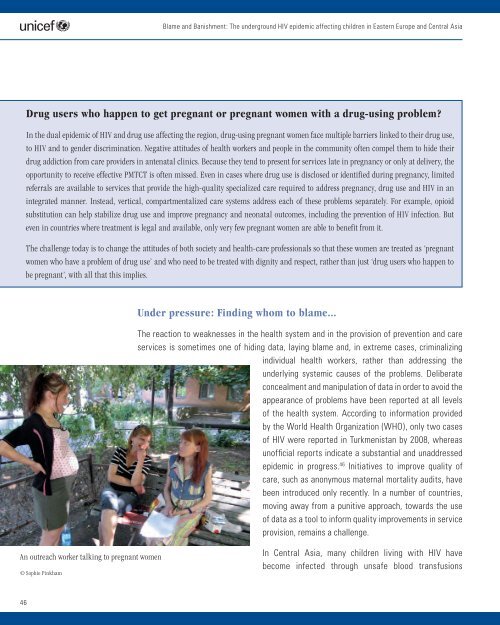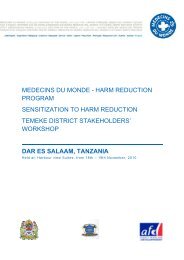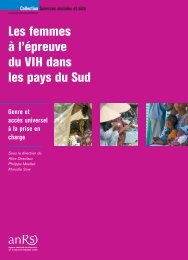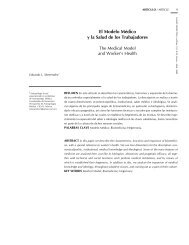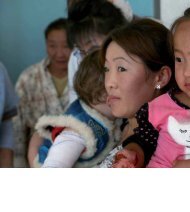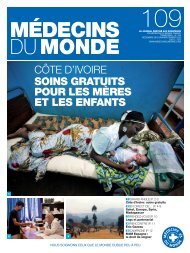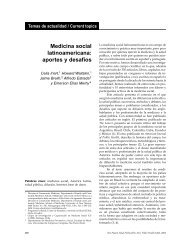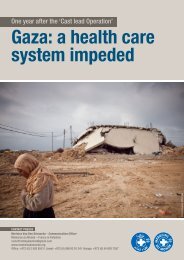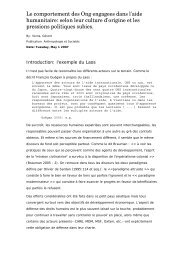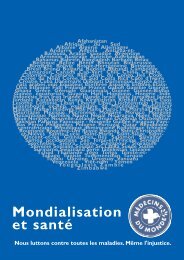Blame & Banishment - Médecins du Monde
Blame & Banishment - Médecins du Monde
Blame & Banishment - Médecins du Monde
You also want an ePaper? Increase the reach of your titles
YUMPU automatically turns print PDFs into web optimized ePapers that Google loves.
<strong>Blame</strong> and <strong>Banishment</strong>: The underground HIV epidemic affecting children in Eastern Europe and Central Asia<br />
Drug users who happen to get pregnant or pregnant women with a drug-using problem?<br />
In the <strong>du</strong>al epidemic of HIV and drug use affecting the region, drug-using pregnant women face multiple barriers linked to their drug use,<br />
to HIV and to gender discrimination. Negative attitudes of health workers and people in the community often compel them to hide their<br />
drug addiction from care providers in antenatal clinics. Because they tend to present for services late in pregnancy or only at delivery, the<br />
opportunity to receive effective PMTCT is often missed. Even in cases where drug use is disclosed or identified <strong>du</strong>ring pregnancy, limited<br />
referrals are available to services that provide the high-quality specialized care required to address pregnancy, drug use and HIV in an<br />
integrated manner. Instead, vertical, compartmentalized care systems address each of these problems separately. For example, opioid<br />
substitution can help stabilize drug use and improve pregnancy and neonatal outcomes, including the prevention of HIV infection. But<br />
even in countries where treatment is legal and available, only very few pregnant women are able to benefit from it.<br />
The challenge today is to change the attitudes of both society and health-care professionals so that these women are treated as ‘pregnant<br />
women who have a problem of drug use’ and who need to be treated with dignity and respect, rather than just ‘drug users who happen to<br />
be pregnant’, with all that this implies.<br />
Under pressure: Finding whom to blame...<br />
The reaction to weaknesses in the health system and in the provision of prevention and care<br />
services is sometimes one of hiding data, laying blame and, in extreme cases, criminalizing<br />
indivi<strong>du</strong>al health workers, rather than addressing the<br />
underlying systemic causes of the problems. Deliberate<br />
concealment and manipulation of data in order to avoid the<br />
appearance of problems have been reported at all levels<br />
of the health system. According to information provided<br />
by the World Health Organization (WHO), only two cases<br />
of HIV were reported in Turkmenistan by 2008, whereas<br />
unofficial reports indicate a substantial and unaddressed<br />
epidemic in progress. 46 Initiatives to improve quality of<br />
care, such as anonymous maternal mortality audits, have<br />
been intro<strong>du</strong>ced only recently. In a number of countries,<br />
moving away from a punitive approach, towards the use<br />
of data as a tool to inform quality improvements in service<br />
provision, remains a challenge.<br />
An outreach worker talking to pregnant women<br />
© Sophie Pinkham<br />
In Central Asia, many children living with HIV have<br />
become infected through unsafe blood transfusions<br />
46


